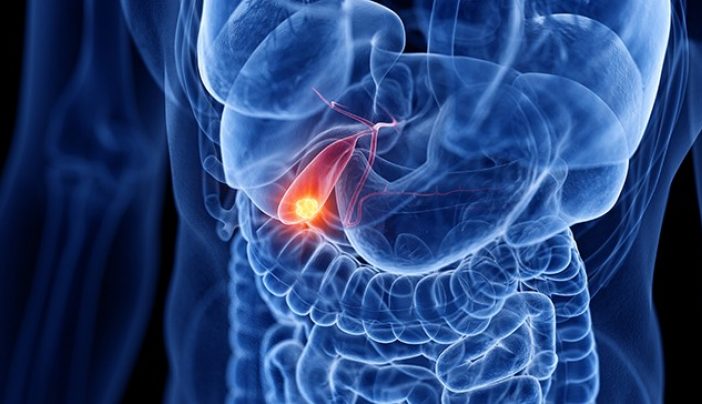Gallbladder Cancer
Gallbladder cancer is a rare type of cancer that begins in the cells of the gallbladder, a small organ under the liver that stores bile. Early detection is often difficult because symptoms typically appear in later stages.
Gallbladder cancer is a rare but aggressive malignancy that arises in the gallbladder, often detected late due to subtle symptoms. Dr. Arvind Kumar is a leading expert in gallbladder cancer treatment in Delhi, offering comprehensive care and advanced treatment options to improve patient outcomes and quality of life.
Signs and Symptoms Of Gallbladder Cancer
-
Abdominal pain, especially in the upper right abdomen
-
Nausea and vomiting
-
Jaundice (yellowing of the skin and eyes)
-
Unexplained weight loss
-
Loss of appetite
Types of Gallbladder Cancer
The main types of gallbladder cancer include:
-
Adenocarcinoma: This is the most common type of gallbladder cancer, starting in the glandular cells that line the gallbladder.
-
Squamous cell carcinoma: A rarer form that begins in the flat cells lining the gallbladder.
-
Adenosquamous carcinoma: A mix of adenocarcinoma and squamous cell carcinoma.
When to Consult a Doctor
If you experience persistent symptoms such as unexplained weight loss, jaundice, or abdominal pain, especially in the upper right side, consult a doctor for further evaluation.
Causes
The exact cause of gallbladder cancer is unknown, but risk factors include gallstones, chronic inflammation, and a history of gallbladder polyps.
Risk Factors Involved in Gallbladder Cancer
-
Gallstones: Chronic gallstone disease is the most common risk factor.
-
Age and gender: Gallbladder cancer is more common in women and older adults.
-
Family history: A family history of gallbladder cancer increases the risk.
-
Gallbladder polyps: Certain types of polyps in the gallbladder may raise the risk of cancer.
Gallbladder Cancer Diagnosis
Diagnosis may involve the following methods:
-
Ultrasound: An imaging test that uses sound waves to create pictures of the gallbladder and surrounding organs.
-
CT Scan: A detailed X-ray that provides cross-sectional images of the body, helping to detect tumors.
-
Biopsy: A tissue sample may be taken for microscopic analysis to confirm the presence of cancer cells.
Stages of Gallbladder Cancer
The stages of gallbladder cancer range from 0 to 4:
Stage 0: Cancer is confined to the innermost layer of the gallbladder.
Stage 1: Cancer has spread to the muscle layer.
Stage 2: Cancer has reached the outer layer of the gallbladder.
Stage 3: Cancer has spread to nearby organs, such as the liver or small intestine.
Stage 4: Cancer has spread to distant organs, such as the lungs or bones.
Treatment Of Gallbladder Cancer
Surgical Intervention
Surgery may be required depending on the stage of cancer. Options include:
-
Cholecystectomy: Removal of the gallbladder, often the first step in treating early-stage gallbladder cancer.
-
Extended Cholecystectomy: Removal of the gallbladder along with part of the liver and lymph nodes to ensure all cancerous tissue is removed.
Chemotherapy
-
Chemotherapy uses drugs to kill cancer cells and may be used before or after surgery to shrink tumors and prevent recurrence.
Radiation Therapy
-
Radiation therapy uses high-energy rays to target and destroy cancer cells. It can be used alone or in combination with surgery and chemotherapy.
Palliative Care
-
Palliative care focuses on relieving symptoms and improving the quality of life for patients with advanced gallbladder cancer.
Prevention
While there's no guaranteed way to prevent gallbladder cancer, the following measures may help reduce your risk:
-
Maintain a healthy weight: Obesity is a known risk factor for gallbladder cancer.
-
Avoid high-fat diets: A diet high in unhealthy fats can increase your risk.
-
Regular medical check-ups: Routine check-ups can help detect gallbladder problems early.
Gallbladder Cancer Doctor In Rajinder Nagar,
Rajendra Place,
Karol Bagh,
Patel Nagar,
Kirti Nagar,
Moti Nagar,
Jhandewalan,
Shadipur,
Shastri Nagar,
Paharganj.
for more details please contact us at +919818826423.
-
Gallbladder Cancer Doctor in Rajinder Nagar
-
Gallbladder Cancer Doctor in Rajendra Place
-
Gallbladder Cancer Doctor in Karol Bagh
-
Gallbladder Cancer Doctor in Patel Nagar
-
Gallbladder Cancer Doctor in Kirti Nagar
-
Gallbladder Cancer Doctor in Moti Nagar
-
Gallbladder Cancer Doctor in Jhandewalan
-
Gallbladder Cancer Doctor in Shadipur
-
Gallbladder Cancer Doctor in Shastri Nagar
-
Gallbladder Cancer Doctor in Paharganj
